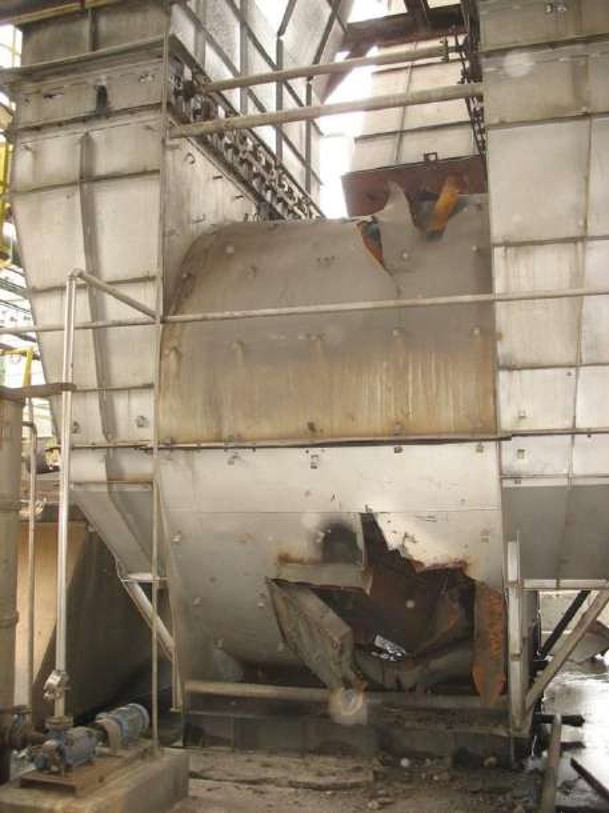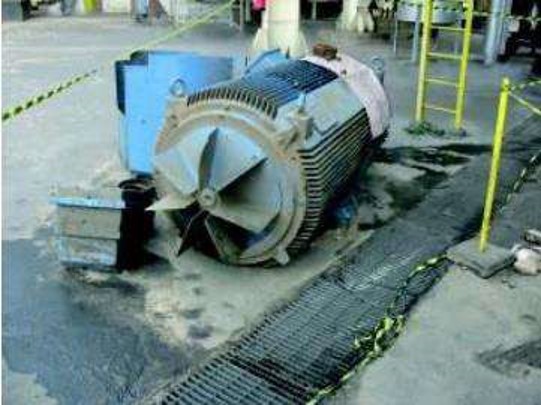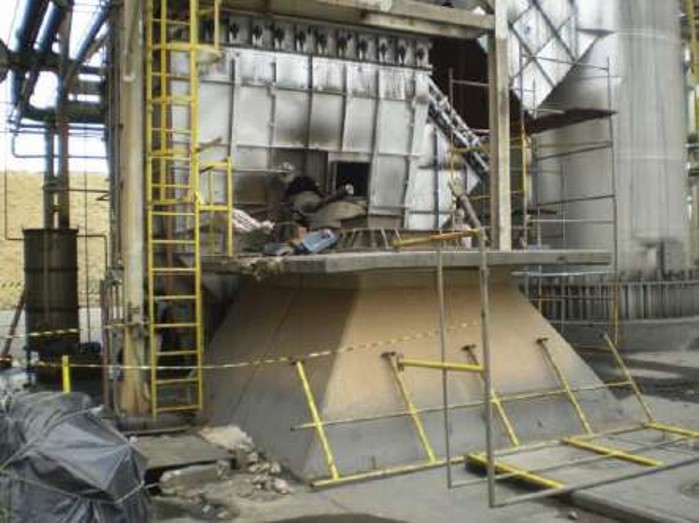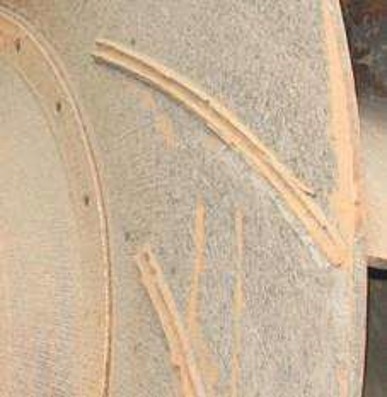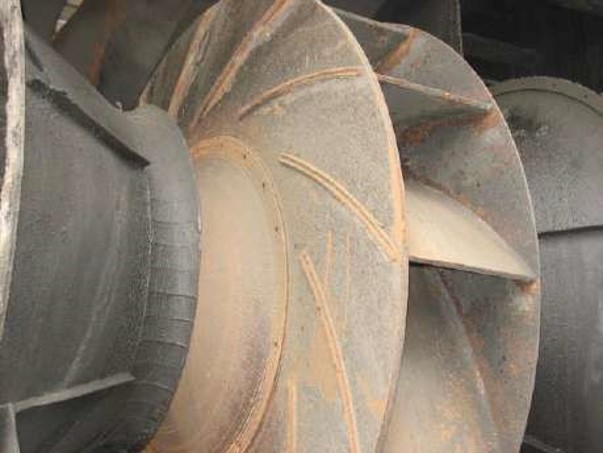Problem
At the end of the 2008/2009 harvest season, a serious accident occurred at a sugar and ethanol plant due to the detachment of anti-wear blades from the rotor of a boiler exhaust fan. This incident led to:
- Complete destruction of the equipment, which had been in operation since 2003;
- Detachment of the motor and bearings from their mounting base due to rotor imbalance;
- Shutdown of the plant, directly impacting productivity;
- Safety risks for workers, with the potential for more severe accidents.
Failure analysis indicated that the issue was caused by poor welding during blade attachment, resulting in lack of fusion and low mechanical strength at the weld joint.
Contracted Service or Solution
We were brought in to conduct a detailed failure analysis and identify the root cause of the accident. To do so, we applied advanced inspection techniques, including:
- Visual examination of fracture surfaces;
- Macroscopic and metallographic analysis to assess weld quality;
- Mechanical testing and hardness measurements to evaluate material strength;
- Chemical analysis of components to verify material suitability.
The goal was to determine the source of the problem and recommend corrective measures to prevent future failures.
Execution Process
The investigation followed these steps:
- Initial visual inspection – Identification of weld fusion issues at blade attachment points;
- Macroscopic analysis – Confirmation that the welds had irregular, poorly prepared bevels, likely performed by unqualified personnel;
- Hardness testing and metallography – Revealed low-quality welds due to incorrect amperage and poor fusion;
- Assessment of imbalance impact – Showed how the initial weld failure triggered a chain reaction of blade detachment, leading to extensive equipment damage;
- Technical report – Provided detailed root cause analysis and preventive recommendations.
Outcome
The study resulted in key preventive and corrective actions, such as:
- Implementing qualified welding procedures, with strict inspection of blade-to-rotor welds;
- Using certified welders to ensure proper execution;
- Conducting regular inspections of exhaust fans as part of boiler evaluations, in line with NR-13 regulatory standards;
- Adopting stricter quality control during equipment fabrication and maintenance.
Impact of Improvements
- Reduced risk of structural failure and unplanned downtime;
- Increased operational safety for both personnel and equipment;
- Extended service life of exhaust fans, lowering replacement costs;
- Prevention of operational losses, ensuring uninterrupted production.
This case demonstrated that proper welding procedures and thorough inspections could have prevented the incident, underscoring the critical importance of preventive maintenance in industrial equipment reliability.


